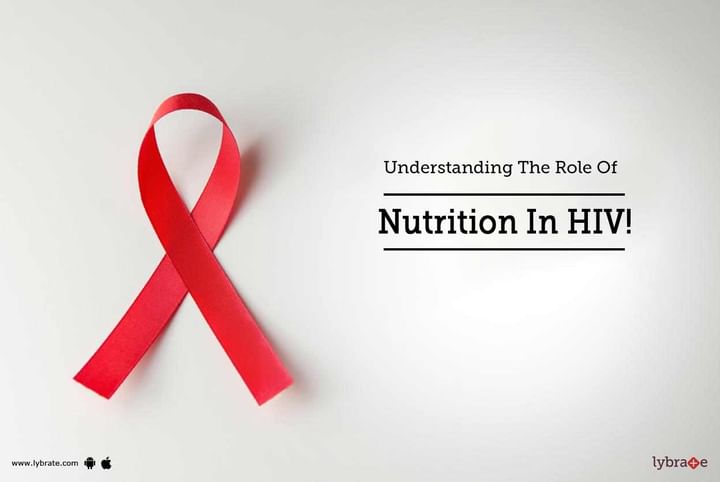Understanding The Role Of Nutrition In HIV!
A healthy immune system and optimum physical strength is maintained by an adequate nutritional status of the body. Unexpected loss of weight, loss of appetite, low dietary intake due to ulcers in the mouth and an altered rate of metabolism are common in HIV infected individuals. It is essential to regain the lost weight and the muscle mass in the early stages of the infection since the correction of nutritional status becomes difficult with the progression of the disease.
Certain measures like definitive anti-retroviral therapy combined with the treatment of opportunistic infections like TB, Candidiasis and other bacterial infections along with the provision of nutritive aid in the form of a balanced diet, regular physical activity, and use of appetite stimulants help in improving the general health of the body. A widespread deficiency of essential nutrition and micro-nutrients is observed among the HIV-infected people. Supplement composition, treatment given and characteristics of the patient vary widely across researches done.
The World Health Organization (WHO) recommends an intake of 1 Recommended Dietary Allowance (RDA) of each of the required micronutrient. This may sometimes require taking supplements of the micronutrients.There is a direct relation between HIV infection and malnutrition, where each makes an individual more susceptible to the other. HIV infection can increase the severity of malnutrition and vice versa.
Malnutrition can worsen the progression of HIV, which further in turn further worsens malnutrition. This is an unending cycle, until an intervention occurs. An increase in the nutritional needs, poor intake of nutrients and increased losses through vomiting and diarrhea lead to a poor nutritional status.
- This causes weight loss and wasting of muscles.
- Loss of the lean body mass is definitively linked to disease and morbidity.
- There is a sense of overall lack of energy, fatigue, lethargy and weakness.
- The immune system is composed of proteins.
- Reduced intake of proteins in the diet results in a decreased production of the immune cells.
- Certain amino acids are responsible to aid in the efficient functioning of the immune system.
- Deficiency of these amino acids impairs immune function.
- This impairment of the immune system makes the individual vulnerable to various infections.
- The opportunistic infections like tuberculosis (TB), Candida and bacterial pneumonias are commonly observed in individuals with HIV.
These diseases further strain the immune system and cause disease progression. It is important to know that nutrition acts as an adjunct to appropriate anti-retroviral therapy. Multivitamins, supplements of beta-carotene and Vitamin A, zinc, selenium and probiotics help in maintaining optimum nutrition in an HIV infected individual. Anabolic agents and appetite stimulants help in overcoming muscle wasting. Nutrient-dense meals consumed in small portions at frequent intervals are better accepted in the body rather than the regular 3 large meals.
Water consumption during meals should be avoided, to prevent a feeling of fullness in the stomach due to water rather than food. A healthy and balanced nutrition is essential in living a normal life. Maintaining the lost weight and stamina of the body, replacement of the lost nutrients, vitamins and minerals aid in improvement of the immune function. Proper nutrition can delay progression of the HIV infection into AIDS disease by improving the response of the body to the treatment given.



+1.svg)
